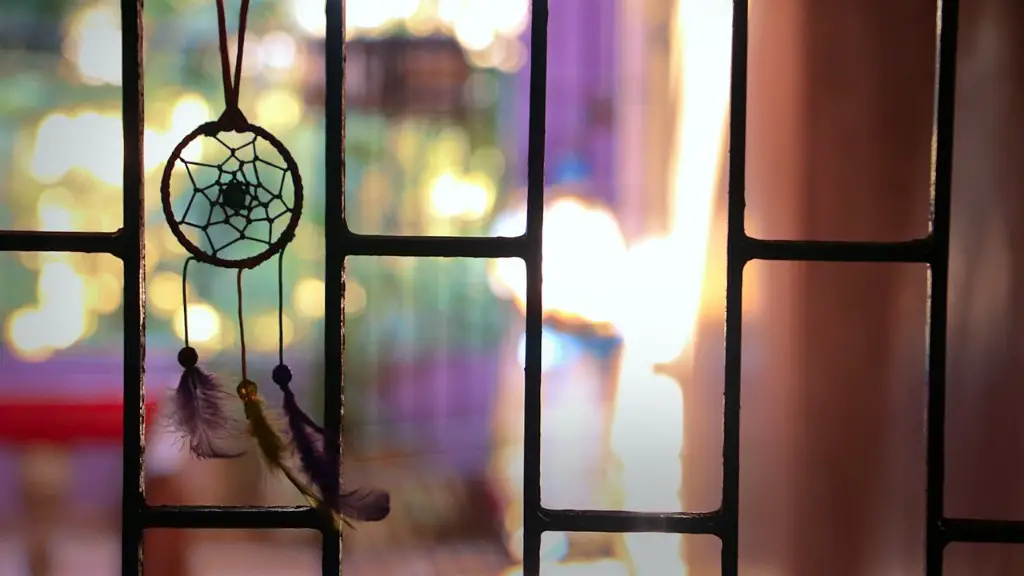There are many different theories as to why we remember some dreams and not others. One theory is that dreams are a way for our brains to process information and events from the day. Dreams help us to make sense of our waking lives and sort through our emotions. Another theory is that our brains are more active when we are in a state of REM sleep, which is when we are most likely to have dreams. This increased brain activity may help us to better remember our dreams. Additionally, some research suggests that we are more likely to remember dreams that are emotionally intense or surprising. So, if a dream is particularly meaningful to us or if it is bizarre or shocking, we may be more likely to remember it.
We can’t always control what we dream about, but sometimes we have dreams that are important to us for one reason or another. Maybe we dream about something that we’re afraid of, or something that we want to happen. Dreams are a way for our brains to process information and sort through our thoughts and feelings. Sometimes, our brains will hold on to a dream because it’s something that we need to pay attention to.
What does it mean when you remember a dream?
If you remember your dream, it could be that you simply woke up during it, so it’s fresh in your mind, says Deborah Givan, MD, sleep specialist at Indiana University Health Methodist Hospital in Indianapolis. Or remembering could mean that you’re remembering the very last dream you had rather than the dream in full.
It is interesting to note that Belicki (3) found that people remember dreams more often when they are awoken during the REM sleep phase. This suggests that REM sleep may be more important for dream recall than previously thought. However, it is also worth noting that people still only recall dreams once or twice a week on average, even when awoken during REM sleep. This suggests that other factors, such as sleep quality and sleep quantity, may also play a role in dream recall.
Why do we only remember dreams sometimes
It is generally believed that we forget our dreams because of neurochemical conditions in the brain that occur during REM sleep. This is the phase of sleep characterized by rapid eye movements and dreaming. However, there are some people who claim to remember their dreams vividly and even use them to help achieve their goals.
This may be because during sleep, our brains do not seem to be able to transfer short-term memories into long-term memory, and thus dreams we had earlier in the night dissipate without leaving a trace.
Can your dreams be telling you something?
Dreams are a reflection of your recent state of mind, future possibilities, and changes that you have experienced. They can be a way to process and understand your thoughts and feelings, or a way to explore different aspects of your personality. Dreams can also be a way to communicate with your subconscious mind, or a way to receive messages from the spiritual realm.
There is a lot of debate surrounding the question of whether or not dreams mean anything. Some people believe that dreams are simply a product of our subconscious mind working through the day’s events or unresolved issues. Others believe that dreams are a way for our higher self to communicate with us.
Alan Eiser, a psychologist and clinical lecturer at the University of Michigan Medical School, believes that dreams can be highly meaningful. He believes that dreams deal with the sort of personal conflicts and emotional struggles that people are experiencing in their daily lives.
Eiser suggests that if you are trying to figure out the meaning of a dream, it is important to look at the overall theme of the dream, rather than individual symbols. He also suggests keeping a dream journal, so you can track patterns and themes in your dreams over time.
Why don’t we remember being babies?
During early childhood, our brain is growing and changing rapidly. This is an important time for developing our memory. As our brain develops, we are able to remember more and more information. We are also better able to recall information that we have stored in our memory.
Our dreams are very fleeting and ephemeral. They disappear very quickly after we wake up and we can only remember bits and pieces of them. It is said that within five minutes after waking up, we have already forgotten 50 percent of the dream’s content. And within ten minutes, we have forgotten 90 percent of it. Dreams are definitely fascinating but they are also enigmatic and elusive.
How many dreams do we forget
It’s interesting that we have several dreams each night, but we usually only remember a small fraction of them. Dreams can be a window into our subconscious mind, so it’s worth taking some time to try to remember and interpret them. There are various techniques that can help with dream recall, such as keeping a dream journal or recording yourself immediately after waking up. With some effort, we may be able to gain some valuable insights into our thoughts and feelings.
The theory is that during REM sleep (when most dreams occur), levels of acetylcholine increase, while levels of norepinephrine decrease. Acetylcholine is associated with memory consolidation, while norepinephrine is associated with wakefulness and alertness. As a result, the researchers theorize that the decrease in norepinephrine during REM sleep prevents the transfer of dream information from short-term to long-term memory, and that’s why people forget their dreams when they wake up.
How many dreams does a person have a night?
Most people have between three and five dreams per night, though some may have up to seven. Dreams generally get longer as the night goes on, and most occur during the two hours of REM sleep in an eight-hour period. However, most dreams are quickly forgotten.
Normal dreams are the most common type of dream and usually occur during REM sleep. Daydreams are less common and usually occur when you are awake and daydreaming. Lucid dreams are when you are aware that you are dreaming and can control your dream. False awakening dreams are when you dream that you are awake, but you are actually still dreaming. Nightmares are the least common type of dream and usually occur when you are stressed or anxious.
What are my dreams trying to tell me
It is believed that dreams are often about identity because they can help us figure out who we are and what we need in life. If we feel unfulfilled or that we are not living up to our potential, our dreams will often reflect that. By understanding our dreams, we can often gain insights into our own lives and what we need to change in order to be happier and more fulfilled.
There is currently little scientific evidence to suggest that dreams can predict the future. Some research does suggest, however, that certain types of dreams may help predict the onset of illness or mental decline. So while dreams may not be able to tell us what will happen tomorrow, they may give us some hints about our health and well-being.
What type of dreams are rare?
Most experts believe that lucid dreams are the rarest type of dreams. While dreaming, you are conscious that you are dreaming but you keep on dreaming. According to researchers, 55 percent of people experience these types of dreams at least one time in their life. Lucid dreaming can be a great way to explore your subconscious mind and can also be used for creative problem solving.
Dreaming about being attacked or chased could symbolize feelings of anxiety or insecurity in your life. Alternatively, this type of dream could be a warning from your subconscious to watch out for danger.
Dreaming about being late could suggest that you are procrastinating or avoiding something in your waking life. Alternatively, this dream symbol could represent your fear of failure.
Dreaming about a loved one dying could represent your feelings of grief and loss. Alternatively, this dream could be a warning from your subconscious to watch out for danger.
Dreaming about falling could symbolize feelings of insecurity or anxiety in your life. Alternatively, this type of dream could be a warning from your subconscious to watch out for danger.
Dreaming about flying could symbolize your desire for freedom or escape. Alternatively, this dream could represent your ambition and desire to achieve success.
Dreaming about school could suggest that you are experiencing feelings of insecurity or anxiety about your performance. Alternatively, this type of dream could represent your fear of failure.
Dreaming about sex could symbolize your unfulfilled desires or your repressed sexual urges. Alternatively, this dream could represent your need for intimacy and connection.
What are the 10 most common dreams
There are many common dreams that people have. Some of the most common are: teeth falling out, being chased, being naked, failing exams, flying, falling, and crashing a car. These dreams can often be symbolic of something going on in our lives. For instance, teeth falling out may symbolize a fear of losing something important, or being naked may symbolize feelings of insecurity or vulnerability. If you have a recurrent dream that is troubling you, it may be worth exploring what it might mean.
It is important to take into account that newborn babies, especially in their first months of life, have more sensitive feet than the rest of their body. Therefore, repeated tickling can cause discomfort and even pain.
Final Words
There is no certain answer to this question. Some ideas include that we remember some dreams because they are more meaningful or significant to us, because they are more emotional, or because they are more bizarre or unexpected than other dreams. It is also possible that we simply have better recall for some dreams than others.
We remember some dreams because of how they made us feel. Dreams can be a way to process the events of our lives and help us make sense of our world. Dreams can also be a form of escapism, providing us with a way to explore our fears and desires without consequence. Whatever the reason, we often find meaning in our dreams and they stay with us long after we wake up.





